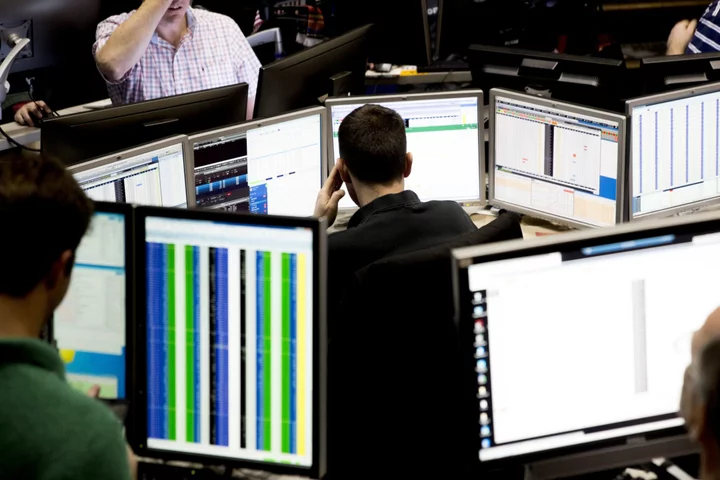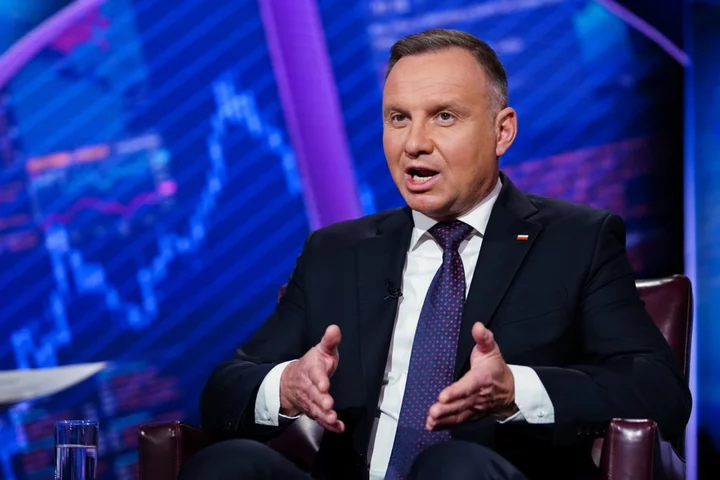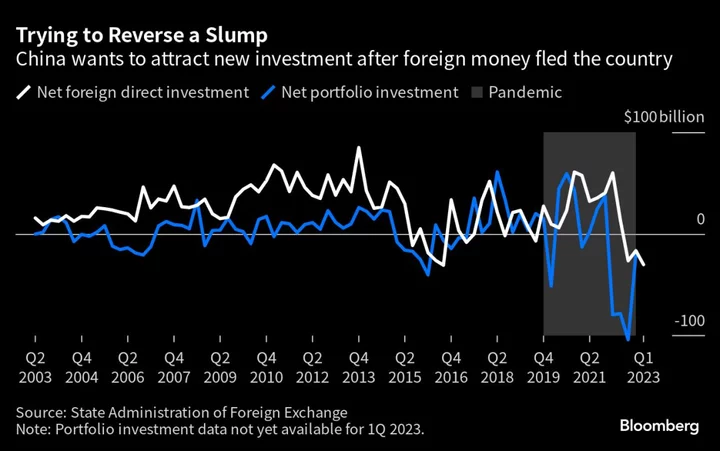The financial market’s biggest and most prominent measure of fear could soon see its only competitor disappear.
After a federal judge last month sided with Cboe Global Markets Inc., trading in Spikes futures is set to stop in November. The product, offered by a unit of the Miami International Holdings Inc., also known as MIAX, is the only competitor to the Chicago exchange’s Volatility Index.
The decision has unsettled some investment firms and market makers, which argue the move will curb competition, drive up prices and hurt liquidity in the futures market. At least three firms have written to the US’s top securities regulator urging it to address the matter and keep Spikes as an option.
“It’s good to have competition,” said Luke Rahbari, chief executive officer of Equity Armor Investments, whose firm has sent a letter to the Securities and Exchange Commission. “Having another product to compete against makes markets and pricing more efficient, and market participants try a little harder.”
Citadel Securities is among firms urging a path forward that ensures that Spikes futures can continue to trade, citing the benefits of increased competition and investor choice, according to people with knowledge of the firm’s thinking.
The SEC declined to comment on the matter.
Cboe started its VIX futures, a popular measure of expectations for volatility in the stock market, in the early 2000s. The product, widely known as the fear index, reigned solo until about four years ago, when a unit of MIAX decided to launch Spikes.
Read More: A VIX Copycat Is Coming as Exchange Tries to Break Cboe Hold
Futures are commonly physical commodities such as oil, corn or coffee beans, and listing contracts based on a security index is a complicated process that requires exchanges to get approval from the SEC and the Commodity Futures Trading Commission, which regulates the derivatives market.
SEC Decision
That’s when tensions arose. After the SEC granted the permission needed for Spikes in 2020, Cboe challenged its decision in court. The Chicago exchange argued the regulator failed to adequately explain its rationale and didn’t consider the harm it could cause investors, according to court documents.
Just like the VIX, MIAX wanted their product to be listed as futures because those are subject to more lenient requirements on margins — the collateral needed to back trades. They also get a more favorable capital-gains tax treatment.
But at the end of July, Chief Judge Sri Srinivasan at the US Court of Appeals in Washington sided with Cboe. The SEC now has until Sept. 11 to appeal, or trading in Spikes will disappear.
Monopoly Risk
Teucrium Trading, which manages more than $400 million across 11 exchange-traded products — including two based on Spikes futures — also wrote to the SEC urging the regulator to revisit the matter. If the volatility gauge disappears, so will two of the Burlington, Vermont-based firm’s ETPs.
“They can correct any of the perceived deficiencies identified by the court to ensure the playing field remains even and level,” said Springer Harris, a portfolio manager at Teucrium. “We risk returning to a monopolized market, which could inadvertently limit choices which could increase costs.”
In a statement to Bloomberg News, Cboe said it welcomes competition, but that the regulator must act “in conformity with applicable law to ensure all new products come to market within a uniform and consistent framework.”
To be sure, trading in Spikes is a tiny fraction of the liquidity VIX futures attract. The number of outstanding contracts on the former stood at just over 1,000 contracts, compared to more than 380,000 for the latter, according to data compiled by Bloomberg.
Market Impact
Still, the dispute is disrupting the market. Traders are refraining from dealing in Spikes futures that expire after October on the Minneapolis Grain Exchange, the unit of MIAX that lists the product, the data shows. The Miami exchange wants the SEC to petition the court for a rehearing on the issue.
“We firmly believe that Spikes futures provide the industry with a competitive choice for trading volatility that fosters innovation, lowers costs to retail and institutional investors, and mitigates single point-of-failure concerns for trading volatility products,” MIAX spokesman Andy Nybo said in a statement.
The decision could affect both retail and institutional investors, such as pension funds, mutual funds and individual retirement accounts, according to MIAX.
Spikes are also cheaper to trade, so it benefits clients with lower trading and transaction fees, said Rahbari of Chicago-based Equity Armor.
“If it goes away there will be impact,” he said. “In general, competition is what finance is about. And obviously if there is a single list product, it’s much more profitable for whoever controls that product.”
--With assistance from Lydia Beyoud.









